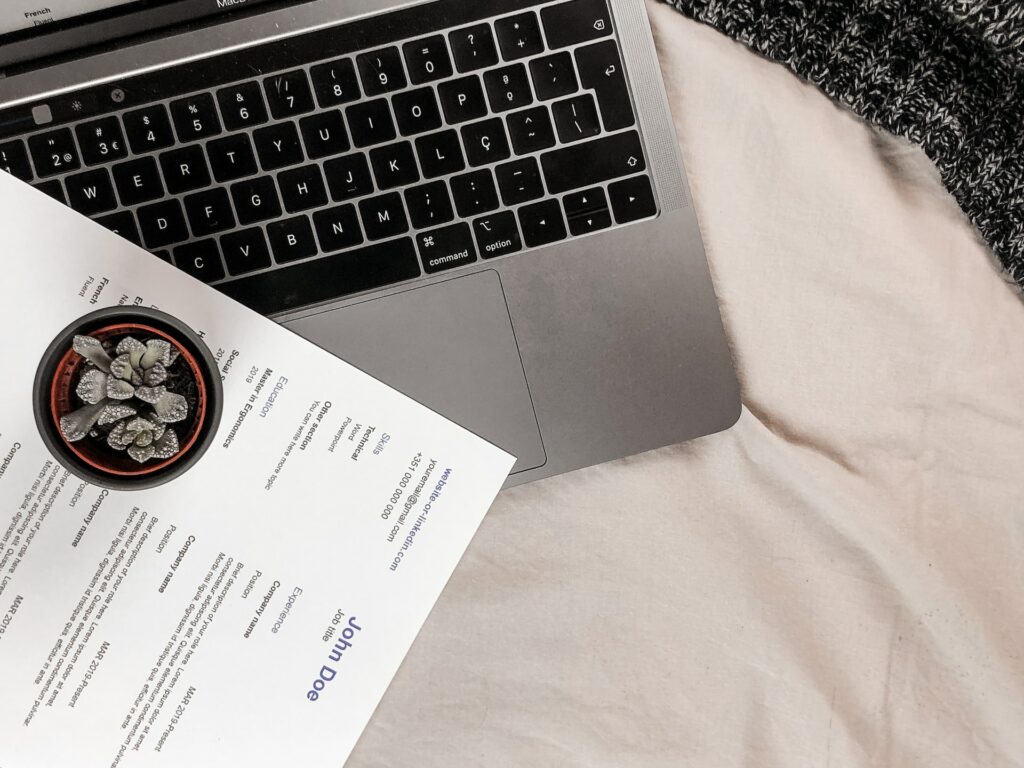Thinking about not applying to that internship after all?
Feel like your qualifications don’t match the position’s or even the organization’s standards? Hold up! Don’t exit out of that application window just yet because we got you covered. Look out for these 10 do’s and don’ts when you want to come off as the most eligible candidate for the internship. Read through our list of tips recommended from college career advisors themselves that can improve resumes, cover letters and even your approach to the application process.
Lost in the depths of internship season? Emerge victorious with an addition for that LinkedIn profile by checking out our five do’s and five don’ts when applying for internships:
Do’s
1. Apply earlier than you think you should

Love procrastinating? Well from a fellow procrastinator herself, don’t leave your internship applications to the last minute. In addition to its nature as a stress-inducing task, you can lose out on a chance to edit through your resume and cover letter one more time before submission. If you find an internship that interests you, make the decision to apply right then and there or to schedule time in the day or week to work on your application. Trust me, missing out on an internship just because you started the application process at 11 p.m. does not feel great whatsoever.
“Earlier is also better because if you find something that you really liked, then you can start building connections within that organization sooner,” Tulane University Senior Student and Employer Advisor Corinne Watson said.
Fun fact! You will miss less deadlines if you apply way before or even a couple of days prior to the deadline. A lot of internships can offer multiple postings or sections that may pique your interest, but they can also close up before the application period ends sometimes. If you want a plethora of options to choose from when applying to a specific organization, then definitely prioritize the job postings that intrigues you the most. Remember, don’t wait until the deadline to start.
2. Apply even if inexperienced

Saw the internship qualification description and realized you don’t meet all of the expectations? Well, you can still apply! Yes, it’s completely normal to not meet all of the expected criteria for an internship because the organization might teach you some of those skills in the position itself. However, it also means that you need to boost other parts of your application to prove why your qualifications match the job and the organization’s goals. Definitely highlight skills you learned from previous experiences in courses, extracurricular activities and even your part time jobs in your cover letter and resume.
“You might not have the skills but sometimes an employer really just wants to know that you agree with their mission statement, and that you want to be in the sector long term,” George Washington University Industry Coach for International Affairs Ivey London said. “Speak to other things, not just your skills, but your passion and your commitment to that work.”
While a resume can limit what you want to show to employers and internship coordinators, gush about your interests in the cover letter and/or writing samples instead. The cover letter provides applicants with the opportunity to talk about why your interests lay particularly in a certain field or industry. Highlight how you can contribute to not only the organization but also to the career itself. Only so much of someone’s personality that can shine through in a resume, so make sure to personalize your cover letter in addition to connecting your experiences to the organization’s wants.
3. Have questions? Talk to the organization

Can you reach out to the organization offering the internship before you apply? Yes! Definitely consider reaching out to the organizations that interest you and ask questions about the specific internship or jobs that they hold. It might seem intimidating at first, but it does help you in terms of getting used to networking in the “real world”. Message previous interns over LinkedIn or reach out to recruiters over email to expand your knowledge of the organization. Getting to know more about the place you might work at allows you to grow your network, prepare for interviews (especially the ‘Why do you want to work with XXX?’ question) and decide if the specific industry is right for you. Don’t feel afraid to reach out when you can!
4. Network, network and more network

In addition to applying for internships, take some time to actually reach out to alumni or well-known people in the industries or services that you like. While the previous tip remains great for asking questions about an internship itself, take the opportunity to also create relationships throughout your internship application journey. Use LinkedIn and even explore your university’s alumni network to connect with individuals who currently live the lifestyle that you might want. Set time aside to craft one to two texts introducing yourself and why you want to talk to that person.
“Take the time to invest yourself in those individuals so that hopefully, they will see your drive and eagerness to learn, that they can help you learn about and apply for opportunities within their organization,” Penn State Career Counselor and Instructor Keith Jones said.
Your alumni can also help you obtain internships if not information about openings at different organizations within your field. Networking not only presents you with a pathway to get involved in your desired industry but also helps build your confidence when it comes to talking with complete strangers. When sending that introductory private message to your alumni or a person who works in an organization, be honest and upfront with what you want. Tell them about your curiosities regarding the career or organization and if they reply, great! If they don’t, no worries. Send that message over LinkedIn because you will acquire networking skills if you practice on a weekly if not a daily basis.
5. A little at a time

Remember, recruiters will reject you as part of the process when applying to internships as an undergraduate student. Keep on trying! Don’t force yourself to fill out 10 to 20 applications per day because that can tire you out even if you drink heaps of caffeine. Set micro goals for yourself as in small tasks that eventually build up to completed applications. Try telling yourself to send networking messages to two people on LinkedIn in a day or even take a week to go through and edit or build resumes.
“Don’t focus too much on just one application that you love,” London said. “Focus on five to 10 that you really like and hopefully you’re gonna get a couple of those interviews.”
The big picture of this tip? Apply to as many internships as you can but also complete those applications over a period of time instead of just cramming them into a single day. If you space out which applications to fill out depending on their deadlines, you can easily manage and track which applications need more information and which ones don’t. Doing this can help you not stress over the internship application process, especially if multiple opportunities interest you at the same time.
Don’ts
6. Apply for the heck of it

Why apply for an internship in the first place? Do you want experience in a particular field? Curious about a specific career and its lifestyle? Need to learn how to properly network? An internship can do all that and then some but you also need to learn more about the specific opportunity besides just reading its description. Explore the organization’s website and read about their mission statement to see if your interests align with their goals. Look through published content like videos, articles or papers available to get a grasp as to what the organization primarily focuses on and how their prevalence matters in the specific industry.
“I think it is important to be able to identify the learning opportunities and work exposure that the internship is able to provide and to focus on those, and how those will make you a more rounded and better candidate with experience when it comes to applying for your first job,” Jones said.
Apply to as many popular name businesses and companies as you want, but also consider local opportunities. Check out small businesses and the positions they offer as well as you can still earn professional work-life experience and even gain networking skills. You can add the experience to your resume and it might impress larger organizations with a competitive applicant pool. Speaking of applicant pools, smaller businesses equals a smaller amount of competition for the position and a smaller number of employees in general. Take advantage of both factors to spruce up your application and to learn more about the organization’s teams or its members.
7. Choose not to use available resources

While you can reach out to alumni, definitely consider visiting your university’s career counselors or career advisors. Career advisors can aid you in refining your search for internships, editing your resume and cover letters and even running mock interviews where you can practice how to answer specific questions. They can also give you a glimpse into the industries or services that interest you the most depending on your major and what school it falls under. For example, if you study international relations and your university offers an international relations college, then most likely you will find advisors trained to help you obtain an internship related to international relations.
Not too sure where to find your designated career advisor at your school? Type in your university name along with “career advisors” or “career counselors” and search for the advisors relevant to your desired career area. Check to see if your career advisors require an appointment scheduled beforehand or if they take walk-ins. Even if you only stop in for a quick visit, take advantage of the professional help available right on your campus.
8. Second guess yourself

Not experienced enough for the position? Unsure about your interest in that specific career field? Totally fine and normal! Rather than reading an internship description and instantly imagining your low chances, take the time to actually go through with the application process. If you get rejected, it is what it is but they could also accept you! Psyching yourself out before you even look at the application already shuts the door to an opportunity that might surprise you.
“I think it’s really important to try to shoot your shot so to speak even if you don’t think you are the most qualified,” Watson said. “There’s definitely things in your power to make up for that.”
Think of the application process as its own experience too. You get to practice how to tweak and perfect your resumes and cover letters while also learning how to market yourself. Professors can’t really teach how to give a good interview in a classroom setting, so you need to understand what it takes to ace the interview stage. Hesitant about an internship application right now? Just go for it! Even some sort of interest and passion can shine through your profile if you take time to prove your curiosity to the organization.
9. Forget to proofread your application

Whether you answer questions on an online application form or you finally write your resumes and cover letters, don’t submit them without more than one readthrough. Skim your resume, cover letter, writing sample or online answers for grammar, punctuation, spelling mistakes and even formatting issues. It can seem more common than you think and how you write can also represent your skills, so don’t underestimate some of the most important preliminary parts!
If you get tired of looking at your application, ask a friend, family member or even a college career advisor at your university to take a look instead. It doesn’t hurt to also ask a fellow peer or friend in your major about the formatting of their resumes and/or cover letters. Try and do this way ahead of the internship deadline because you can tweak your documents in time in the case any of those above-mentioned people find minor or even major errors.
10. Mull over your rejections

Zero response after submitting your application? Rejected after the interview stage? Yeah, not the best feeling in the world to experience since it can make you question your worth as a student and even as a job candidate. Don’t beat yourself over it! If you don’t feel the best after receiving a rejection from an internship, take the time to process your feelings. Don’t rush yourself to get over it. At the end of the day, you know that the next step involves more applications and looking for different positions at various other organizations.
Don’t feel like applying for some time? Go ahead! Even delete LinkedIn off your phone if you need to. You determine when you want to showcase your skills and portfolio to organizations, so try not to force yourself to apply if you don’t feel mentally ready. The right internship will come along someday but you need to stay motivated and confident for that time.



















